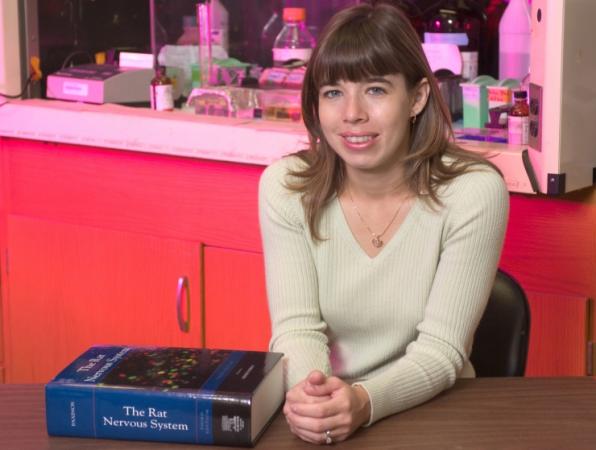Manu Platt, associate professor in the Wallace H. Coulter Department of Biomedical Engineering at the Georgia Institute of Technology and Emory University, has received $510,000 in NIH funding to more closely explore the mechanisms leading to strokes associated with sickle cell disease (SCD) in children. His research collaborators in this study include fellow Coulter Department associate professors, Edward Botchwey (Georgia Tech) and Shella Keilholz (Emory), and Hyacinth Hyacinth, a pediatric physician specializing in hematology and oncology at Emory’s School of Medicine.
Platt’s research team is investigating the cellular mechanisms occurring in arteries that trigger and increase the risk of strokes since the causes are unknown for children with SCD. The overall objective of his study is to determine the roles and regulatory mechanisms behind cathepsin mediated arterial remodeling in SCD, and identify methods to mitigate arterial damage to prevent strokes. This study could result in better treatments to prevent SCD strokes in children at risk. Furthermore, the study also seeks to develop better MRI protocols to monitor strokes such as quantifying stroke lesion number and size.
More than 300,000 babies are born with SCD every year globally—11 percent of these children will have a major stroke by age 16. Children who have suffered a stroke in the past have a high risk of having another stroke. Children with SCD have a 67 percent risk of recurrence with strokes.
Recurrent major strokes are not the only problem for SCD children. So-called “silent” strokes can also cause significant morbidity. Most strokes are usually diagnosed by observing motor deficits, but silent strokes occur without obvious symptoms like spotting movement difficulties. These “silent” strokes can only be detected through brain imaging devices such as magnetic resonance imaging (MRI) scans. It’s estimated that up to 35 percent of children with SCD will have a silent stroke.
CONTACT:
Walter Rich
Wallace H. Coulter Department of Biomedical Engineering
Georgia Institute of Technology
Media Contact
Walter Rich
Keywords
Latest BME News
Jo honored for his impact on science and mentorship
The department rises to the top in biomedical engineering programs for undergraduate education.
Commercialization program in Coulter BME announces project teams who will receive support to get their research to market.
Courses in the Wallace H. Coulter Department of Biomedical Engineering are being reformatted to incorporate AI and machine learning so students are prepared for a data-driven biotech sector.
Influenced by her mother's journey in engineering, Sriya Surapaneni hopes to inspire other young women in the field.
Coulter BME Professor Earns Tenure, Eyes Future of Innovation in Health and Medicine
The grant will fund the development of cutting-edge technology that could detect colorectal cancer through a simple breath test
The surgical support device landed Coulter BME its 4th consecutive win for the College of Engineering competition.










